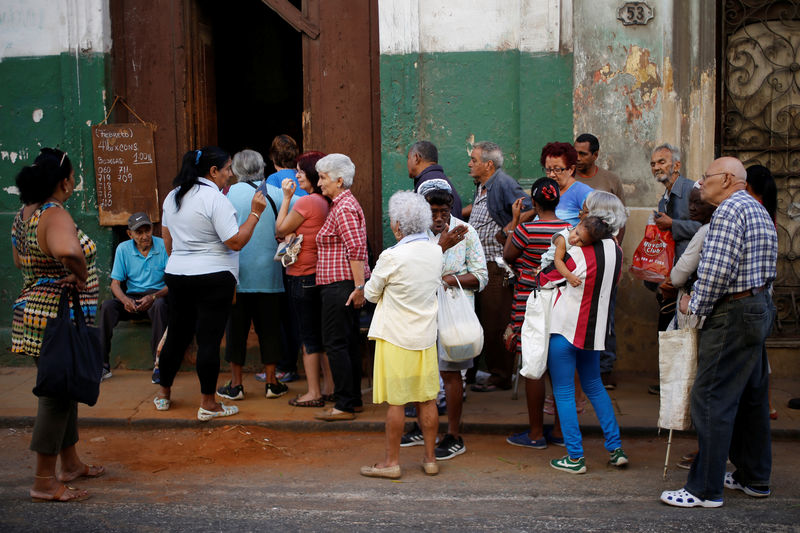By Marc Frank
HAVANA (Reuters) - Some foreign businesses in Cuba are scrambling to defend their interests while others are rethinking the risk as the Trump administration bears down on Venezuela and Cuba, according to a dozen experts, diplomats and businessmen.
The United States has said it is considering activating a long-dormant law that would expose companies and individuals to lawsuits for trafficking in expropriated Cuban property, as well as placing the country on the list of state sponsors of terrorism.
That would undermine efforts by the administration of Cuban President Miguel Diaz-Canel to foster foreign investment and promote tourism on the Caribbean island.
To make matters worse, the fall of Cuban ally President Nicolas Maduro's socialist government in Venezuela would be a serious blow to the Communist-run nation's already fragile economy.
"It’s Trump going after Cuba that worries investors, as opposed to Venezuela, which has largely been proverbially costed in," said British investor and consultant David Mathew, who has been involved with a number of Cuba projects, including growing and importing coffee.
Mathew said he was already receiving "a pre-emptive push back" from some would-be foreign investors.
The Trump administration is threatening to allow a law that has been suspended since its creation in 1996 to take effect in March allowing U.S. citizens to sue foreign companies and individuals over property confiscated in the 1960s by the Cuban government.
The so-called Title III rule forms part of the Helms-Burton Act, which codified all U.S. sanctions against Cuba into law 23 years ago.
It has been waived by every president ever since due to opposition from the international community and fears it could create chaos in the U.S. court system, analysts say.
"It is all bad news. The economy is going to get worse than it already is due to the Venezuela crisis and Trump’s new threats are already scaring people away," said one commercial attaché from a European country with extensive business interests in Cuba.
"Our businesses are coming to us asking what we can do about any new U.S. measures," he said. "They are really worried, and so are we."
Cuba's economic reliance on Venezuela has diminished in recent years due to a decline in subsidized oil sales from the South American nation. Cuba has begun diversifying its oil supplies from other sources, such as Russia and Algeria.
Pavel Vidal, a former Cuban central bank economist who teaches at the Universidad Javeriana Cali in Colombia, said a continued gradual winding down of the economic accords with Venezuela could wipe between 4 and 8 percent off gross domestic product.
"If there is regime change and cancellation of all agreements, the impact could be greater," he said.
When Venezuela's late President Hugo Chavez launched his Bolivarian Revolution in Venezuela in 1999, an increase in trade led to a partial revival of the Cuban economy, which had stalled after the fall of its benefactor, the Soviet Union.
But the trade relationship had already weakened from around $7.2 billion in 2014 to $2.3 billion in 2017, according to the Cuban government, due to Venezuela’s economic crisis and declining oil exports.

This has led to economic stagnation in Cuba, reduced allocations of fuel and electricity to state entities, periodic scarcities of medicines, bread and other goods and increasing debt to suppliers and investors.